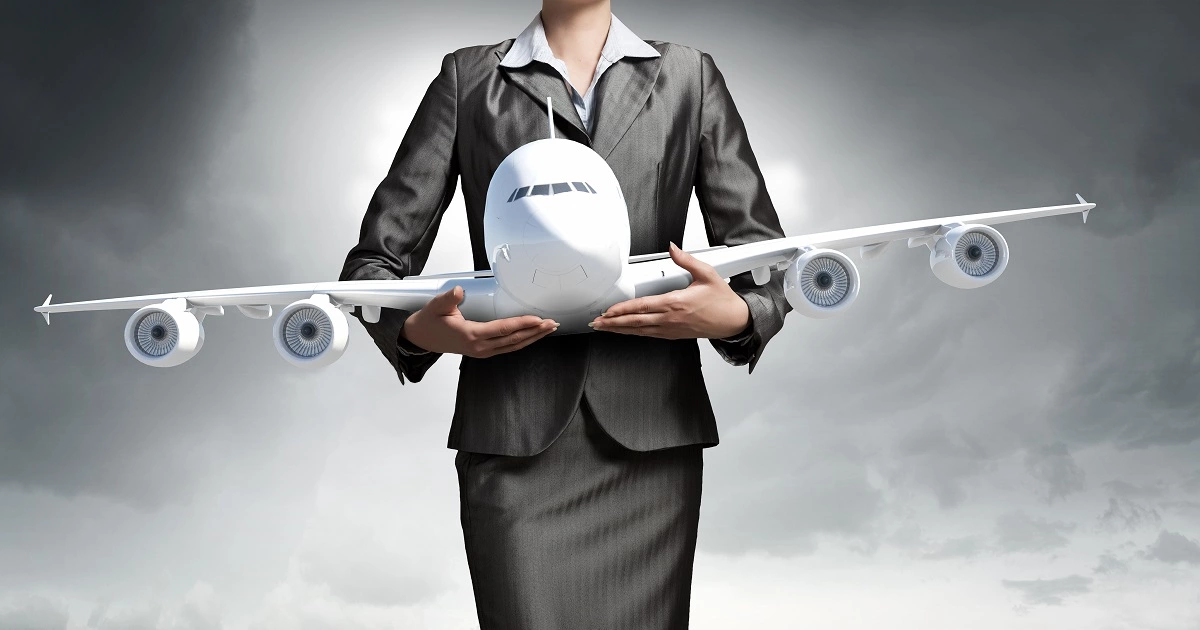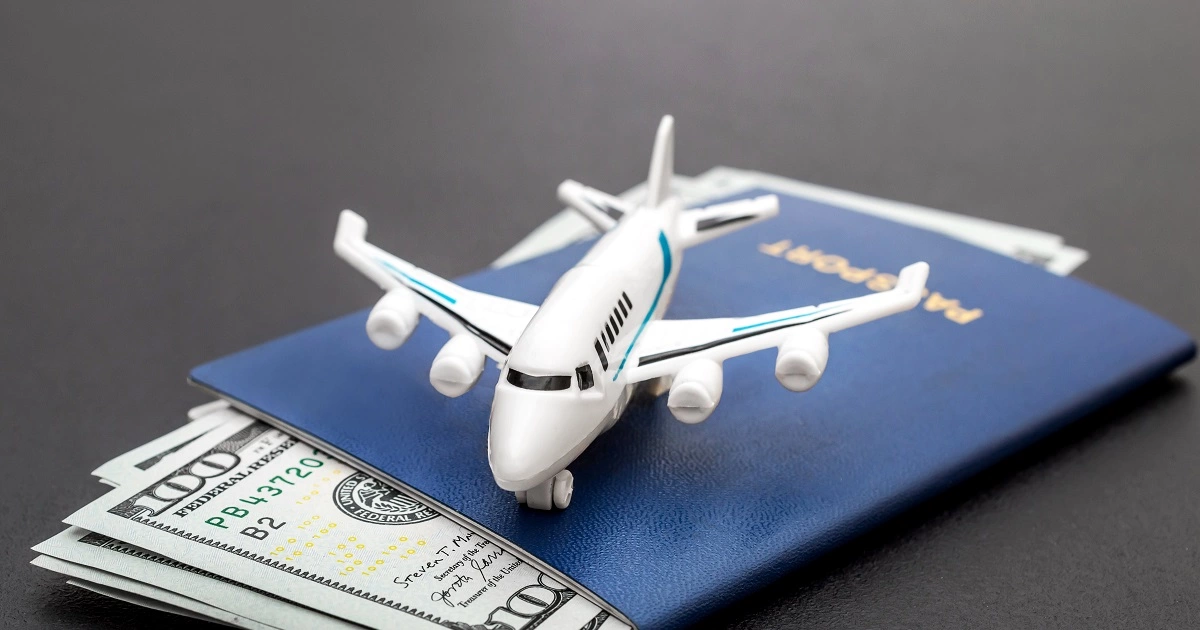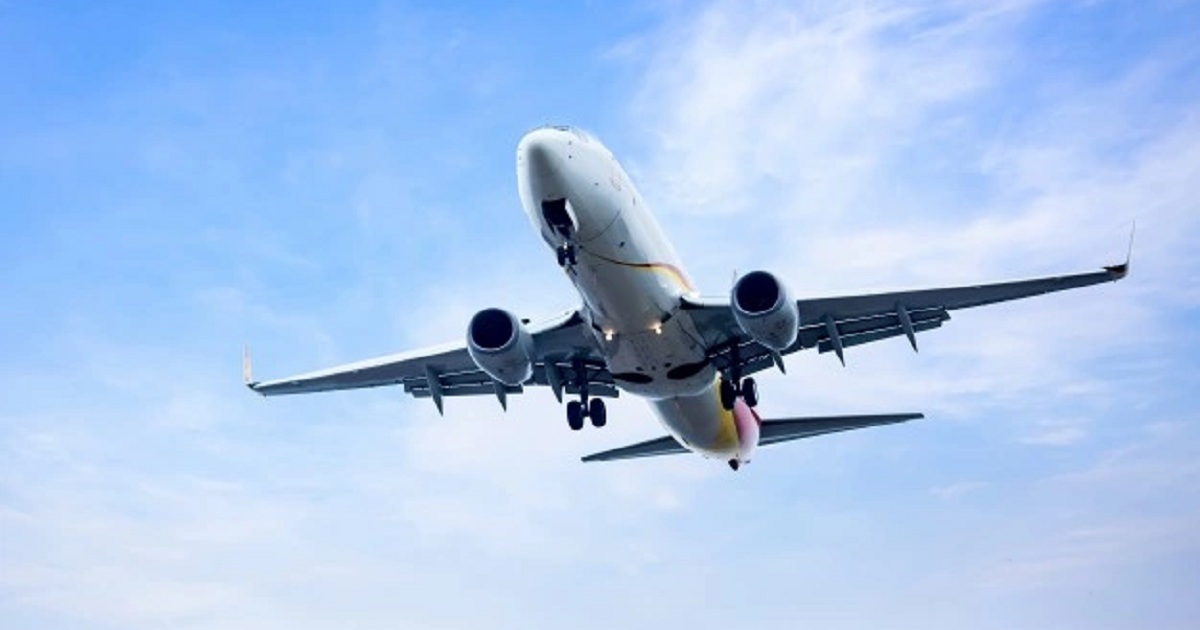
Air Transport
Article | July 26, 2022
Flying is changing, and so is the future of piloting. With technological advancements across the aviation industry, one can only anticipate what’s in store for the future of piloting. The battle between automation and learning skills that automation can easily take over is coming to a head. As airplane engineering matures, the aviation industry isn’t far from seeing a day when pilots who have undergone training on electric trainers require a license endorsement to fly a piston-powered aircraft.
Goodbye, Manual Flying
Airplanes are becoming downright easier to fly. Consider how most pilots today would never be able to fly the aircraft that their seniors trained in. According to experts, piloting skills will put more emphasis on the efficient use of airspace systems instead of directing and maneuvering the aircraft.
Decoding Airplane Information
Traditionally, a pilot’s primary task was to gather and decode the information he received through the aircraft’s systems. This information was then used to give the pilot an “air picture” which allowed him to get a sense of the air traffic, airspace, and weather. As aircraft technology improves, pilots will no longer need to know how to do this. Instead, the "air picture" will be shown on a screen in front of them.
Final Word
From augmented reality to 3D spatial audio cues, augmentation is happening to aircraft as well as the pilot’s ability to fly them. The evolution of aviation technology will only help transform the mechanics of airplanes, and pilots will no longer need to handle flight control. As augmented reality takes over, future cockpits might not even need to be at the front of the aircraft or have windows. That would be the true test of the future of piloting.
Read More

Business Aviation
Article | January 7, 2022
This week, the GE Gas Power team launched season five of Cutting Carbon, their award-winning podcast that focuses on climate change, the basics of what decarbonization is and the technologies behind it. In season five, the team is focused on decarbonization closer to home and invited Arjan Hegeman, GE Aviation’s general manger for advanced technologies, to talk about the future of flight.
Learn more about the role of GE Aviation’s technologies available today and in development for tomorrow to make aircraft engines more fuel efficient and reduce carbon emissions. Open fan, hybrid electric and hydrogen combustion are all discussed by Hegeman and the hosts. Over two episodes, Hegeman also explains the importance of Sustainable Aviation Fuel (SAF), along with the new engine technologies, to help the aviation industry reach its goal of net-zero carbon emissions by 2050.
The Future of Flight is a two-part episode, and can be found as Episode 27 and Episode 28 under Cutting Carbon. You can listen to the podcast here or on your favorite streaming platform!
The aviation industry is at an inflection point for new technology introduction and acceleration of technology development, Hegeman says. GE Aviation is currently developing its next-generation suite of engine technologies, including open fan engine architecture, hybrid-electric propulsion, and advanced thermal management concepts. GE Aviation is also supporting industry initiatives to approve and adopt 100% SAF and is partnering on a new flight demonstration program to test zero-carbon hydrogen fuel combustion.
GE’s ambition is to be a net zero company by 2050, including the Scope 3 emissions from the use of sold products. GE is also committed to being carbon neutral by 2030 in its own facilities and operations, including Scope 1 and Scope 2 emissions.
Read More

Air Transport
Article | July 15, 2022
Whether you’re a small, newer airline looking to make a splash in the online world or a niche brand wanting to expand your customer base, you’ll need the right aviation marketing strategies in your arsenal. Similar to any other industry in today’s market, digital strategies are non-negotiable for brands in the aviation space who are hoping to connect with customers online and restore customer confidence in the aftermath of COVID-19.
And if you’re looking to take your brand to the digital skies, you need impactful strategies that help you offer a seamless customer experience. Let’s look at five strategies you can use for your aviation marketing strategy.
Aviation Marketing through Social Media
Visibility is a hugely important goal to achieve for any business. After all, how can you hope to attract new customers if no one knows about you? This is especially true and important for smaller airlines or those not operating in the commercial space. For example, when the average customer thinks about traveling by plane, they probably aren’t considering private airlines.
But if customers see content online about airlines, perhaps even highlighting that some private airlines fall in their price range, things can change. Once customers are aware of your company, you’re one step closer to securing a sale. The key is getting in the picture in the first place—something social media can do.
In addition to visibility, use social media to keep your customers informed. Despite us seemingly living in a post-COVID world, uncertainty is still a big factor that customers and airlines alike have to consider. Positive coronavirus results or transmission outbreaks can throw a wrench in travel plans right up until check-in, but social media offers a way to keep customers informed with live information and updates.
Airlines can use social media platforms like Twitter to post live updates on flights, including regular information on delays, but also more unexpected and yet super useful updates on things such as weather conditions at their destination.
And if you’re looking for international aviation marketing strategies as a multinational company, social media is a great way to connect with customers across territories too, thanks to its global reach.
Digital Customer Service Strategies
We saw during COVID-19 how important it was to provide quick, accurate information to customers, with things like up-to-date websites, live social updates, and automated texts for flight changes. These strategies all helped to streamline customer service offerings, as well as free up helplines and customer service booths at airports, and they have helped establish a new benchmark when it comes to customer service.
Having a solid customer service strategy in place is more important than ever—specifically, having one that’s responsive, flexible, and digital. This means offering smart chatbots that can assist with frequently asked questions, detailed guidance online addressing common challenges that customers face, and over-the-phone support in multiple languages that can enhance an international aviation marketing strategy.
Customer service might not seem like it matches with airline marketing, but going above and beyond for your customers is essential in creating the right reputation for your brand. Establishing your company as a gold-star service provider will not just give you something to shout about online, but it will also keep customers loyal and engaged with you too.
Mobile Solutions
We all know that the future is mobile—and it’s no different for aviation companies, who have that same pressure to keep up with technological advancements if they want to provide the best service possible for their customers.
Smartphones are an integral part of all of our lives, and they’re now just as important as ever, as people are taking their digital identification with them on their travels. Aviation companies must recognize the company they keep in the travel space, where mobile apps support customers on their journeys and trips—from navigation to weather and accommodation to ridesharing. Without an interactive app or fully mobile-friendly site, an airline’s strategy for marketing won’t be as impactful.
Customers used to have to carry printed versions of their flight documents in order to board, including boarding passes and booking confirmations, but things aren’t so paper-based anymore. Digital wallets that keep boarding passes safe and apps that store customers’ flight information are the norm now.
Mobile apps are also fantastic for driving loyalty programs. With an interactive app where customers can collect and cash in loyalty points, you not only provide an easy way for customers to enjoy their rewards, but also make flying more accessible and cost-effective.
In a post-COVID market, there is even more of an emphasis on contactless travel—another area where mobile solutions can play a key role. Phones allow consumers to have all their information handy, and other contactless technology helps facilitate airport management.
Content that Creates Real Connections
Digital content has the potential to reach a wider audience and, more importantly, turn readers into customers, so it should be included in any airline marketing strategy. Showing customers exactly what your company can do for them, and how you do it, is crucial for establishing strong branding and customer relationships. It’s how airlines can differentiate themselves from their competitors and add value to their services.
Meaningful content that your audience will trust includes user-generated content that offers real insights into what it’s like to be a customer of your company, such as honest reviews and feedback from real customers. You can deliver this content in a variety of ways—e.g., blogs, videos, social media, PR—but however you choose to do so, be sure to keep the story at the forefront of your narrative to create those all-important connections with customers.
Omnichannel Digital Experiences
Alongside social media, there are a slew of other digital channels that should be considered in your digital strategy. This is hugely important because of the myriad ways that consumers interact with the online world nowadays. If it’s not live Twitter updates, it’s check-in reminder emails. The point is that brands need to be present across different platforms and digital mediums in order to provide a competitive and effective experience for their customers.
For airlines, it’s about making sure that no matter what device a customer is using, their journey is cohesive and streamlined. They should be able to switch seamlessly between your website on their laptop and emails on a tablet, with the right information easy and quick to find in a consistently branded way.
It’s also worth considering that people tend to carry multiple devices with them while traveling, making it even more important for airlines and airports alike to offer omnichannel digital content to their customers.
Conclusion
Whatever part of your aviation branding or marketing you need support with, the team at TPT Digital can take your brand to new heights. The 2022 Aviation Festival is a great opportunity for learning, connection, and collaboration—come and say hello to us there!
Also, get in touch if you’d like to discuss how TPT Digital can support your paid social media content. We’re happy to give you a free quote.
Read More

Business Aviation
Article | August 31, 2021
The unprecedented wave of Covid 19 created significant turbulence in the aviation industry that made the industry face daunting new challenges. However, as airlines continue to respond to the challenges, the marketers remain focused on paving the way for quick recovery.
Whereas, aviation experts admitted that this black swan event impacted the airline industry roughly. The impact of COVID-19 on airlines was forced to face bankruptcy, destruction of financial packages, and complete changes in the airline industry in terms of security. Therefore, while keeping the fact that COVID-19 will have longer-term repercussions, it’s imperative the airline industry would quickly reduce the impact on its stakeholders and operations. And for this, airlines need to go beyond conventional thinking and come forward in using technology to dig in for the long haul.
Airline Industry: Riddled with Challenges Amid COVID-19
Given the airline market behavior during the Covid-19 crisis, it has many opportunities to target different marketing segments through direct and indirect channels. However, some complexities that challenged building an effective marketing strategy were:
Drop-in Revenues
According to KPMG, commercial revenue has been a rich source of income in airline businesses; it contributed more than 50% of inclusive revenues in the airline industry. However, a large share of revenue is generated by marketing which has completely dried up with minimum footfalls. Reduced economic growth, absence of remote work arrangements, and loss of operational models have been some of the fallen parts of the airline industry to deal with this new reality.
IATA, at first, stated that airline revenues could fall by $314 billion in 2020 owing to COVID-19, which is a fall of 55% compared to 2019. However, further analysis revealed that it fell $419 billion more in the same year. Also, the second quarter of 2020 saw a nearby decline to $43.5 billion in revenues compared to the projected baseline, a reduction of more than 1%.
Impact on Future Investments
The impact of COVID-19 on airlines was much on the plan for future investments and asset building. These areas posed significant challenges for airline businesses and investors to monetize assets or repurpose them to create shareholder value. In other ways, competition from newer asset-light businesses also posed an additional challenge on asset building and profitability.
How has Airline Industry Retorted to the Pandemic?
Most businesses have reduced all new investments, freezing shares, maintenance, and partnership costs. These have been the extreme response expected in the war—COVID-19, which is even gimmer than war.
But, despite all the impact of COVID-19 on airlines, airlines have responded with alacrity. The crisis made them stand by quickly developing new business processes and operations, research models. In a longer time, changes in the airline industry weren’t so significant. Airlines are also witnessing a radical shift in their development priorities and unique opportunities to conduct research. The desire to provide additional pressure on revenue management systems to predict demand more accurately has also been the core force of development. Let’s understand more under the following points:
Technology Makeover
In a progressively evolving digital-only landscape, the technology carries more value if used well. Investing in the right tools and technology can help monetize assets better and significantly improve operating efficiency and customer experience.
Refocus on Cost-line
Innovations in marketing strategies, technology can suggestively change the cost of providing services for both airlines and airports. It can help give more pressure on both affordability and profitability. This area of transformation can stimulate significant savings in operating costs and could become the norm for the best performance of marketing.
Innovate
COVID-19 has spawned the best inventions and innovations. The value of data and technology that you have access to today cannot be overstated. Yet, the aviation industry has shown the resilience to come back stronger and smarter. Therefore, there is a necessity for a thoughtful, analytical, and consistent approach to reforms to help the industry function at a newer and higher altitude and redefine its new normal. The changing geopolitical marketing scenario and impending operational shifts globally demand a swift and nimble approach. Advantageous changes in airline industrial policy in COVID-19 will be required to feat the opportunity, with accrete marketing strategic gains and create a better future.
In a nutshell, airlines had to reinvent how they looked at bookings, employee management, and revenue management, as the previous curves were no longer relevant, and the training data used for machine learning algorithms were no longer valid. Now, airline businesses are exploring novel ways to shorten the old methods used in forecasting, pick up on trends more quickly, and incorporate demand adjustments made by manual revenue management users.
Finally, the writing is evident on the wall—as airline stocks continue to falter (by 16 to 20%), the industry needs to go beyond conventional thinking and use technology to dig in for the long haul.
Airline Marketing: Path to Recovery with 3 Important Tech-Strategies
Inclusion of Advanced Analytics
In the next five years, airline businesses will proceed to develop their ability to install advanced analytics. Although the industry has been using advanced data and analytics, there are expectations that marketing leaders will expand the entire value chain of analytics more progressively. Data-backed analytics will render insights to pinpoint geo-specific interventions for maximum ROI.
While traditional sources of competitive advantage for airlines such as products, networks, technology will continue to gain importance, it is believed that increased usage of data science and advanced analytics will help the industry to augment these sources to deliver notable performance improvement.
Rapid Adoption of Data Science
The aviation industry is part of the change, too, in terms of technology development. Airline Technologies in Covid is radically varying the way businesses connect with their customers. The data required is allowing businesses to take informed steps towards operational efficiency. While embracing new technologies, changes in the airline industry are witnessing the addition of artificial intelligence (AI) to the maximum so that businesses can operate in the post-COVID-19 scenario.
Control of Digital Solutions
As airline market behavior during the Covid-19 crisis has incurred changes in the airline industry, the control of digital solutions has come to the rescue. The solutions are in need to shift resources and efficiently scale to maintain operations. Digital tools can help with a wide range of business efficiency, sales and revenue management, marketing, and network planning.
Opportunities to Reimagine in Post COVID-19 Era
Here are the significant ways in which it could be done.
Operating Model
Airlines today need a data-driven operating model with a mindset that pushes accountability across each touchpoint in the business journey. Marketing teams should be organized around journey stages keeping technological aspects on board. The operating model should be accompanied by KPIs that should be measured across the customer journey and regularly shared with every team member.
Digital Transformation
The airline industry could consider stepping up IT, digital, and automation investment now. The crucial strategies for digital transformation are driving data-driven platforms and personalization. Tracking business interaction at every touchpoint with the brands and their products enables better predictive analytics. This means integrating digital solutions with enterprise systems and making the data available at the point-of-sale for sales associates to view, interpret and recommend products accordingly will enhance the convenience of operations. In the case of point, airlines businesses can respond to the faster recovery of short-haul flights by investing in direct sales, owning the customer relationship.
Also, relationships with IT and its providers could be re-considered and explore from a technologically perspective. Beyond this, other initiatives which involve efforts like using data in smarter ways to enhance decision making, requiring some investment to yield significant payoffs, are in the line of digital investments.
Virtual Reality
Gone are the days with COVID-19, when customers were physically involved in the airline business and running it successfully. Unfortunately, the panic of the pandemic is here to stay as a part of our life. So, companies will need to think out of the box. Several tools are available in the market today to avoid physical interactions. Brands have introduced their own ‘Virtual test and try’ tools for marketing and sales purposes.
For instance, Guerlain invested in gamification and launched a mobile game called ‘WeChat’ to promote its sales deck. Similarly, to enhance the operational desk, Lancôme introduced ‘Virtual Mirror’ - an augmented reality virtual makeover app.12 ‘Modiface’- a Canadian AR and AI company, was purchased. Its product performs virtual try-on simulations and is enabled to support live video for all airline operations.
So, the crisis and issues the airline industry facing in the Covid‑19 on revenue generation will still be intensely felt in 2021-2022, as it was earlier. But it is expected that the coming quarter of 2021 will show improvements compared to the previous. This means the industry, which was moving from a decline of 7% in the first quarter of 2021, will see a decline of 35.2% in the fourth quarter compared to the projected baseline.
How to Plan a Marketing Strategy for your Airline Company?
Being in the market already, you can understand where the roots of a marketing campaign come from. Nearly all the airline businesses arise their marketing activities from their vital target group or according to the demand to promote a new product.
There is no solitary way to create a marketing campaign because it involves many company-specific details. Here, you will need to understand how you can stay ahead of your competitors in the marketing field to yield revenue.
Here is a brief sum-up of some valuable points that can help you.
Stick with your Customer Segment: Business or corporate travelers differ in their travel behavior and priorities. So, while you run a marketing campaign, it should highlight this factor as a prime concern.
Focus on the Product you will Market: This point covers that you need to consider that all the product dimensions (digital, physical, service) to market should consider on parameters like how do you want it to market, what are your secondary aims, and how can you benefit from customer actions.
Foster Interaction: So, try to keep as much interaction with your customers as possible. It does help to build loyalty, establish relations with your brand, and source valuable data about your customers. By doing this, you will be able to create a personalized experience for them in the future.
Be loyal: As long as you are not an ultra-low-cost airline operator, you will perhaps have to reward the loyalty your frequent customers give you. Special offers, discounts, and loyalty programs make your brand a company to stick with forever.
Keep an Eye on Competitors: As the airline market has high competition and competitors, your team creating a marketing strategy must include two key elements: your market position and your competitors.
And the last, you must maintain a balance between competition and customer loyalty at any cost.
Frequently Asked Questions
What are the top three issues the airline industry is facing in the Covid‑19?
Although the airline industry faced several challenges, the worse challenges were:
Sluggishness in travel/travel bans
Loss of revenue
Data loss
Which airlines have been most affected by coronavirus?
The list of airlines worst affected by covid-19 goes as:
China Southern
Hainan Airlines
Singapore airlines
Japan airlines
Korean Air & Asiana
Middle Asia
British Airways
United Airlines
What is the future of the aviation industry after covid-19?
From the perspective of the COVID-19 scenario, the aviation industry needs to pick itself up and begin rebuilding. From hygiene and health standards to aircraft data management to monitor an aircraft’s components and onboard equipment can transform airline operations.
{
"@context": "https://schema.org",
"@type": "FAQPage",
"mainEntity": [{
"@type": "Question",
"name": "What are the top three issues the airline industry is facing in the Covid 19?",
"acceptedAnswer": {
"@type": "Answer",
"text": "Although the airline industry faced several challenges, the worse challenges were:
Sluggishness in travel/travel bans
Loss of revenue
Data loss"
}
},{
"@type": "Question",
"name": "Which airlines have been most affected by coronavirus?",
"acceptedAnswer": {
"@type": "Answer",
"text": "The list of airlines worst affected by covid-19 goes as:
China Southern
Hainan Airlines
Singapore airlines
Japan airlines
Korean Air & Asiana
Middle Asia
British Airways
United Airlines"
}
},{
"@type": "Question",
"name": "What is the future of the aviation industry after covid-19?",
"acceptedAnswer": {
"@type": "Answer",
"text": "From the perspective of the COVID-19 scenario, the aviation industry needs to pick itself up and begin rebuilding. From hygiene and health standards to aircraft data management to monitor an aircraft’s components and onboard equipment can transform airline operations."
}
}]
}
Read More